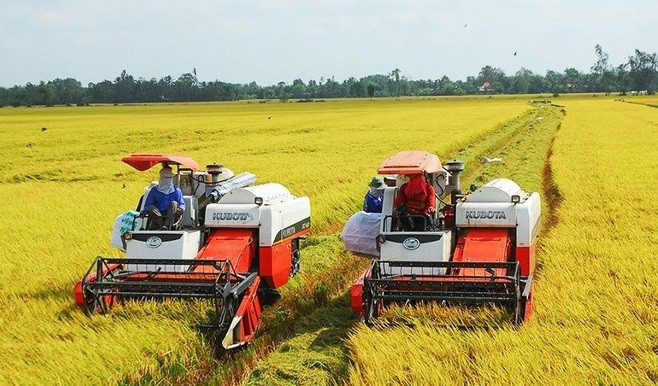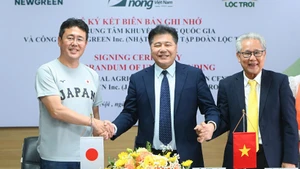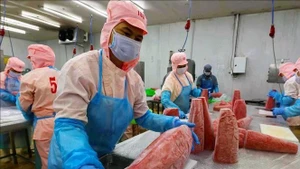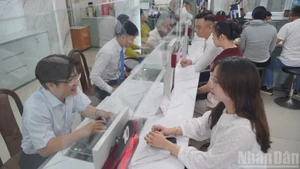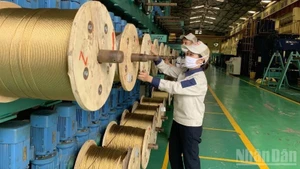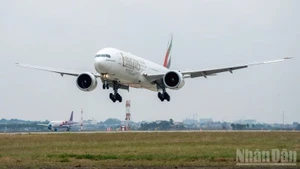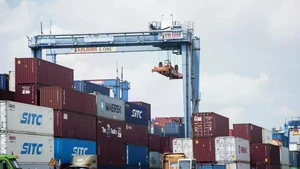Vietnam may record a year-on-year increase of 11% in the rice export volume in 2023 to over 8 million tonnes, predicted Deputy Minister of Agriculture and Rural Development Phung Duc Tien.
The year 2023 is full of difficulties for rice export as geo-political conflicts in the world have disrupted food and input material supply. The El Nino phenomenon, which poses a risk of contraction in food production, has triggered some countries’ concern over supply for domestic demand. The suspension of grain export by such countries as India, the UAE, and Russia has also caused big supply pressure, thus mounting concern in the global food market.
However, as a leading exporter of farm produce, particularly rice, Vietnam has still managed to guarantee national food security and export growth.
Facing complex developments in the rice market, the Prime Minister on August 5 issued a directive ordering national food security to be firmly ensured and sustainable rice production and export promoted in the current period.
He has also assigned the Ministry of Industry and Trade to coordinate with relevant agencies to carry out rice trade promotion programmes appropriate to the new situation to improve Vietnamese rice’s value. They were also asked to capitalise on preferential treatments under the free trade agreements to which Vietnam is a party to diversify markets and better the competitiveness of the Vietnamese grain.
Under the strategy on developing rice export markets of Vietnam until 2030, agricultural authorities are ordering localities and key rice farming zones to conduct restructuring to produce more quality grain for export and raise the added value.
Though domestic rice supply is low at present, there are still grounds to anticipate that this year’s export volume will surpass 8 million tonnes.
About 7.75 million tonnes of rice worth 4.41 billion USD were exported during the first 11 months of 2023, rising 36.3% year on year, the Ministry of Agriculture and Rural Development reported, attributing the surge to a 17.3% increase in the average export price to 568 USD per tonne.
Export prices now average 663 USD per tonne as a result of high demand, it said.
In addition, the quality of Vietnamese rice in the global market has also been further affirmed after the ST25 variety once again obtained the “World’s Best Rice” title recently.
Vu Van Dong, General Director of the Dai Duong Investment and Trade JSC, perceived that high prices form an advantage but also pose a risk to Vietnamese rice.
Businesses can export much and earn big as India, the world’s biggest rice exporter, is suspending overseas shipments of the grain. However, to those keeping large stockpile, if they do not make right assessments and proper preparations, they will face difficulties once India or China changes its policy, he pointed out.
Businesses hope that rice prices in the winter - spring crop will stay high to benefit farmers. Meanwhile, export prices in the further future may decline but are unlikely to fall sharply, possibly to about 600 USD per tonne, Dong added.
